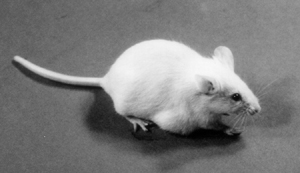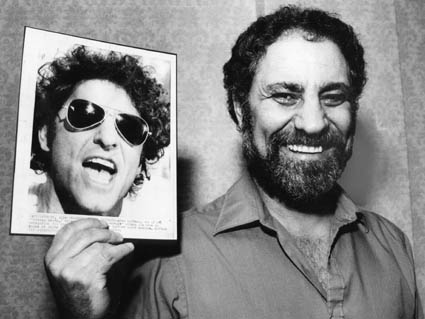... He knew that there was passion there, but there was no shadow of it in her eyes or on her mouth; there was a faint spray of champagne on her breath. She clung nearer desperately and once more he kissed her and was chilled by the innocence of her kiss, by the glance that at the moment of contact looked beyond him out into the darkness of the night, the darkness of the world.
 Charles Scribner & Sons published F. Scott Fitzgerald's fourth and final completed novel, Tender Is the Night, on this date. The book was completed in the fall of 1933 and serialized in four installments in Scribner's Magazine before its publication on this date.
Charles Scribner & Sons published F. Scott Fitzgerald's fourth and final completed novel, Tender Is the Night, on this date. The book was completed in the fall of 1933 and serialized in four installments in Scribner's Magazine before its publication on this date.Over the next several years, Fitzgerald would struggle to finish what would be his fifth and last novel (The Last Tycoon.) He died from a massive heart attack six years later in 1940, almost completely forgotten and he considered himself a failure. In 1998, the Modern Library ranked Tender Is the Night 28th on its list of the 100 best English-language novels of the 20th Century.
April 12, 1936 -
The Ernst Lubitsch produced confection, Desire, starring Marlene Dietrich and Gary Cooper (teamed together again after Morocco) premiered on this date.
Ernst Lubitsch directed some scenes because of Frank Borzage's prior commitment at Warner Bros.
Today in History:
April 12, 65 -
Seneca the Younger (not to be confused with his father Seneca the Elder or his grandfather Seneca the Dead), Roman philosopher and humorist was accused of being involved in the Pisonian conspiracy, a plot to kill Nero (old school Evil Bastard). Nero escaped the assassination attempt and Seneca went home to commit ritual suicide. Committing ritualistic suicide at work had become unfashionably and very messy. His wife, Pompeia Paulina, intended to commit suicide after but was forbidden to do so by Nero. She attempted suicide by cutting her wrists, but the wounds were bound up, and she did not make a second attempt. Unfortunately for Seneca, who also chose to cut his wrists, his diet caused the blood to flow slowly, thus causing pain instead of a quick death.
 He took poison given to him by a friend, but it didn't work. He dictated to a scribe, and then jumped into a hot pool. He did not try to drown, but instead, it appears, tried to make the blood flow faster. Seneca finally died from suffocation from the steam rising from the pool.
He took poison given to him by a friend, but it didn't work. He dictated to a scribe, and then jumped into a hot pool. He did not try to drown, but instead, it appears, tried to make the blood flow faster. Seneca finally died from suffocation from the steam rising from the pool.This was not the easy way out.
April 12, 1861 -
The first shots of the American Civil War (aka the War of Northern Aggression) rang out at an attack on Fort Sumter, South Carolina, on this date. Abner Doubleday (of baseball fame) aimed the cannon that fired the first return shot in answer to the Confederate bombardment. No one died in the actual battle, but one Union soldier died and another was mortally wounded when firing a cannon showing their surrender.
Accounts, such as in the famous diary of Mary Chesnut, describe Charleston residents along what is now known as The Battery, sitting on balconies and drinking salutes to the start of the hostilities. Four years, two days and 618,000 dead later, Abraham Lincoln was assassinated by southerner John Wilkes Booth while watching Our American Cousin at the Ford Theatre. He died the following day.
Moral: avoid theatre.
April 12, 1867 -
In the history of bizarre accidents, William Bullock’s story is always cited as an example. Bullock was an American inventor whose 1863 invention of the rotary printing press helped revolutionize the printing industry due to its efficiency and ability to print 10,000 units per hour.
 In April 1867, while he was trying to install a new printer in one of his presses, in a frustrated attempt to make adjustments to the machine, he kicked a driving belt onto a pulley.
In April 1867, while he was trying to install a new printer in one of his presses, in a frustrated attempt to make adjustments to the machine, he kicked a driving belt onto a pulley. What followed next tops scenes from even the most gruesome movies like Hostel and Saw. His foot got caught in the merciless contraption, was crushed beyond repair and developed a severe gangrene infection for four days. Bullock died during an operation to amputate his foot.
What followed next tops scenes from even the most gruesome movies like Hostel and Saw. His foot got caught in the merciless contraption, was crushed beyond repair and developed a severe gangrene infection for four days. Bullock died during an operation to amputate his foot.Bizarre Indeed.
April 12, 1945 -
Franklin D. Roosevelt, the only president ever elected to four terms of office, died of a cerebral hemorrhage in Warm Springs, GA, on this date, after meeting with his long time mistress and his wife's social secretary, Lucy Page Mercer Rutherfurd. (That really pissed Eleanor off.)
The following day, Vice President Harry S. Truman assumes the post and is told for the first time about the Manhattan Project.
Roosevelt really liked to keep secrets.
April 12, 1947 -
It's David Letterman's birthday.
17 years ago, Drew Barrymore celebrated his birthday by climbing atop the Late Night desk and flashes her bosomy protuberances at the man.
This is the closest Dave every got to a 'Happy Birthday Mr. President' moment.
April 12, 1954 -
The very fat and sweaty Bill Haley & His Comets recorded Rock Around the Clock in New York City on this date.
Initially it was not a big hit on American Bandstand, the recording would go on to help launch the rock and roll revolution a year later.
April 12, 1961 -
Yuri Gagarin became the first human to travel into space in Vostok 3KA-2 (Vostok 1), on this date. During his flight, Gagarin famously whistled the tune "The Motherland Hears, The Motherland Knows" The first two lines of the song are: "The Motherland hears, the Motherland knows/Where her son flies in the sky". This patriotic song was written by Dmitri Shostakovich in 1951 (opus 86), with words by Yevgeniy Dolmatovsky. It was obviously not a big hit on American Bandstand at the time - although it did have a good beat, you could hardly dance to it.
There were speculations in the media that from orbit Gagarin made the comment, "I don't see any God up here." There are, however, no such words in the full verbatim record of Gagarin's conversations with the Earth during the spaceflight.In a 2006 interview a close friend of Gagarin, colonel Valentin Petrov, stated that Gagarin never said such words, and that the phrase he uttered was, "I don't see any Goddamn toilet up here and I have to go."
April 12, 1966 -
While on his way to a business meeting, Jan Berry, one half of the rock and roll duo Jan and Dean, crashed his Corvette into a parked truck on Whittier Drive, near the intersection of Sunset Boulevard, in Beverly Hills, receiving severe head injuries and falling into a month long coma.
Strangely, the automobile accident was just a short distance from Dead Man's Curve in Los Angeles, California, two years after the song had become a hit. .
April 12, 1988 -
U.S. patent 4,736,866 is granted to Harvard University for a genetically-modified mouse, engineered to be particularly susceptible to carcinogens.
 The cancer-prone Harvard Oncomouse is the world's first patented creature, and perhaps also the most screwed.
The cancer-prone Harvard Oncomouse is the world's first patented creature, and perhaps also the most screwed.April 12, 1989 -
1960s counterculture icon Abbie Hoffman swallowed 150 Phenobarbital barbiturate pills on this date.
 You'd think someone might have mentioned to him that perhaps this was not a good idea.
You'd think someone might have mentioned to him that perhaps this was not a good idea.April 12, 1992 -
EuroDisney opens to the public, attracting a meager 50,000 visitors. Expectations had been about ten times as many. This underwhelming response by the European public will continue for more than a year.
Finally, after 18 months of retooling, the resort is ultimately rechristened Disneyland Paris.
And so it goes
No comments:
Post a Comment